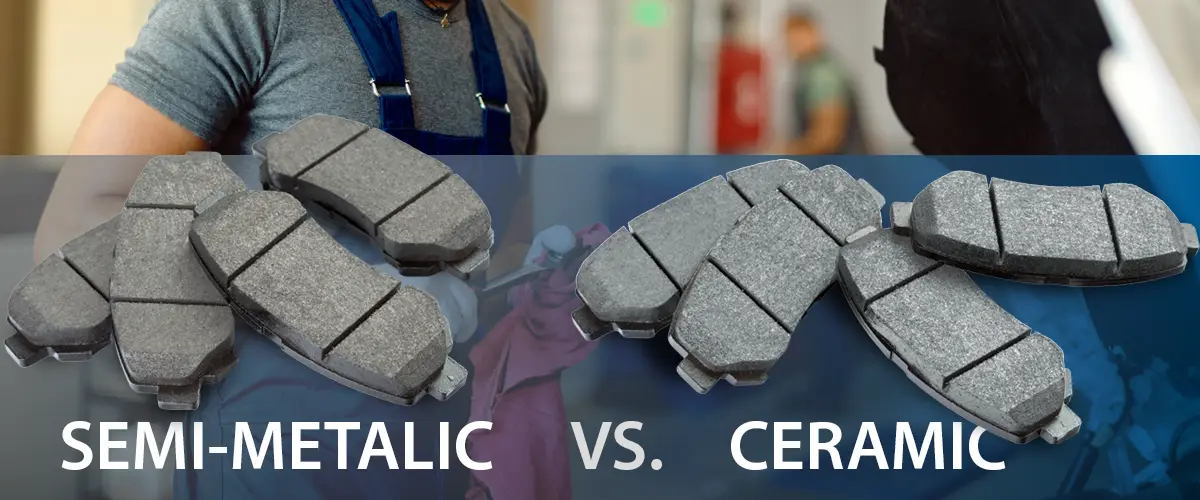If you’re shopping for brake pads, chances are you’ve come across two popular options:
semi-metallic brake pads and
ceramic brake pads. Each type offers unique benefits depending on your driving habits, vehicle type, and performance needs. In this guide, we break down the differences to help you choose the best brake pad for your car.
What Are Semi-Metallic Brake Pads?
Semi-metallic pads are made with a blend of metals like steel, iron, copper, and graphite—typically 30–70% of the pad’s composition.
Benefits:
Superior heat dissipation, great for towing and high-performance driving
Strong braking power under extreme conditions
More budget-friendly than ceramic pads
Drawbacks:
Noisier during braking
More brake dust—can dirty wheels quickly
Potential rotor wear over time
Ideal For: Trucks, SUVs, sports cars, and vehicles driven in tough terrain or high speeds.
What Are Ceramic Brake Pads?
Ceramic brake pads consist of ceramic fibers and bonding agents, with small amounts of copper to aid heat management.
Benefits:
Exceptionally quiet performance
Low dust production, keeps wheels clean
Gentle on rotors, prolonging rotor lifespan
Drawbacks:
Less effective under extreme heat
Typically more expensive
Ideal For: Sedans, compact cars, and daily commuters driving in city or suburban settings.
Which Brake Pad Type Is Best for You?
Your driving style and environment matter. Choose semi-metallic if you prioritize performance and durability under tough conditions. Go with
ceramic if you value quiet, clean, and smooth braking for everyday use.
Find your Brake Pad here
Contact Us For Free Consultation

